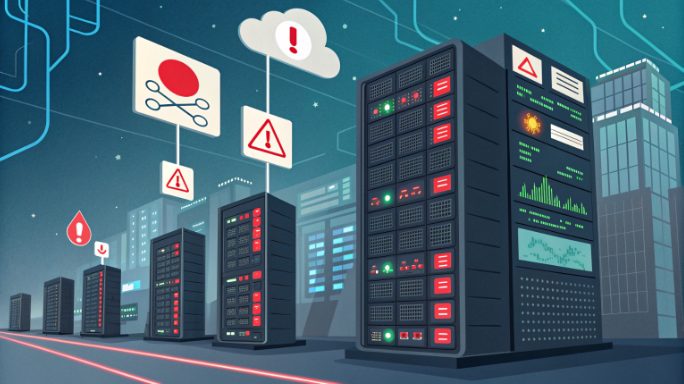What To Do When Japan Multi-IP Server IPs Suddenly Fail?

Understanding IP Failure in Japan Servers
When managing Japan multi-IP servers, sudden IP failures can disrupt your operations dramatically. As tech professionals increasingly rely on Japanese hosting services for their superior network infrastructure and strategic location, understanding how to handle IP failures has become crucial. This comprehensive guide explores both immediate solutions and long-term strategies for IP management in Japan servers.
Common Causes of IP Failure
Before diving into solutions, let’s examine the technical reasons behind IP failures:
- IP Block Restrictions: Japanese ISPs might implement sudden blocks due to suspicious activity
- Network Configuration Issues: Misconfigurations in routing tables or DNS settings
- Hardware Malfunctions: NIC failures or server hardware problems
- Administrative Oversights: Expired IP leases or missed payments
- DDoS Attacks: Resulting in temporary IP blacklisting
Immediate Response Protocol
- Diagnostic Steps:
- Run network connectivity tests
- Check server logs for error messages
- Verify IP assignments in control panel
- Monitor network traffic patterns
- Contact Your Provider:
- Open an urgent support ticket
- Provide detailed diagnostic information
- Request temporary IP allocation if needed
Long-term Solutions and Prevention
Implementing robust solutions is essential for maintaining stable IP operations on Japanese servers. Here’s a comprehensive strategy:
IP Management Infrastructure
- IP Rotation System:
- Automated IP switching mechanisms
- Load balancing configurations
- Traffic distribution algorithms
- Backup IP Pool:
- Reserve IP addresses for emergencies
- Geographic IP distribution
- Multiple subnet arrangements
Monitoring and Maintenance
Establish a proactive monitoring system to prevent IP failures:
- Automated Monitoring:
- Real-time IP status checks
- Network performance metrics
- Traffic pattern analysis
- Alert system configuration
- Regular Maintenance Schedule:
- Weekly network diagnostics
- Monthly configuration reviews
- Quarterly security audits
Selecting Reliable Japanese Hosting Providers
When choosing a Japanese hosting provider, consider these critical factors:
- Technical Capabilities:
- 24/7 technical support availability
- Multi-language support options
- Proven track record in IP management
- Infrastructure Quality:
- Tier-3 or Tier-4 data centers
- Redundant network connections
- Advanced DDoS protection
Frequently Asked Questions
Critical Questions About IP Management
- Q: How long does IP recovery typically take?
A: Recovery time varies from minutes to 24 hours, depending on the cause. Technical issues might resolve quickly, while administrative problems could take longer.
- Q: Is data safe during IP failures?
A: Yes, IP failures don’t typically affect stored data. However, maintaining regular backups is crucial for data security.
- Q: What are the costs associated with IP changes?
A: Costs vary by provider. Emergency IP changes might incur additional fees, while planned rotations are often included in service packages.
Best Practices for IP Management
Implement these proven strategies to maintain stable IP operations:
- Documentation:
- Maintain detailed IP allocation records
- Document configuration changes
- Keep updated network diagrams
- Security Measures:
- Regular security audits
- IP whitelisting protocols
- Traffic monitoring systems
Conclusion and Future Considerations
Managing Japanese multi-IP servers requires a combination of technical expertise and strategic planning. By implementing robust monitoring systems, maintaining proper documentation, and partnering with reliable hosting providers, you can minimize IP failures and ensure smooth operations. Stay updated with the latest Japanese hosting solutions and network management practices to keep your infrastructure resilient and efficient.

